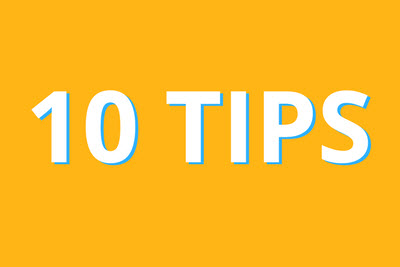In yesterday’s Advisor, we presented some of the unique challenges in hiring minors for summer work, specifically whether they should be classified as interns or employees. Today we present 10 tips to remember when hiring minors this summer.
 |
Here are some tips for handling your summer hires:
- Understand and comply with both federal and state child labor laws and occupational safety and health regulations that apply to your business. Employers must check state law and federal law and must comply with the more restrictive law.
- Stress safety, particularly among first-line supervisors who have the greatest opportunity to influence teens and their work habits. Work with supervisors and experienced workers to develop an injury and illness prevention program. Train adolescent workers to recognize hazards and use safe work practices.
- Assess and eliminate hazards for adolescent workers, such as:
- Driving a car or truck
- Operating tractors or other heavy equipment
- Using power tools
- Employers are responsible for verifying the age of their minor employees. Age certificates do not give employers authority to violate any child labor laws. Employers must determine a minor’s age and set his or her job duties and work schedules accordingly and carefully. Also, employers must file the minor employee’s age certificate, keeping it for as long as the minor is employed.
- Unless employers are absolutely certain that they are not engaged in interstate commerce, they should assume that they are.
- Internships in the for-profit, private sector will most often be viewed as employment by the federal Department of Labor (DOL), unless the test described above is met. Interns who qualify as employees rather than trainees typically must be paid at least the minimum wage and overtime compensation for hours worked over 40 in a workweek.
- Remember, the federal child labor laws limit the hours and the times of day that minors aged 14 and 15 may work. Minors 14 and 15 years of age may be employed outside school hours in a variety of nonmanufacturing and nonhazardous jobs for limited periods of time and under specified conditions. Minors aged 16 and 17 may be employed for unlimited hours in any occupation other than those declared hazardous by the Secretary of Labor.
- Child labor regulations limit the hours and the times of day that minors aged 14 and 15 may work to:
- Outside school hours;
- No more than 3 hours on a school day, including Fridays;
- No more than 8 hours on a nonschool day;
- No more than 18 hours during a week when school is in session;
- No more than 40 hours during a week when school is not in session; and
- Between 7 a.m. and 7 p.m., except between June 1 and Labor Day, when the evening hour is extended to 9 p.m.
- Children under the age of 14 may not be employed in nonagricultural occupations covered by the Fair Labor Standards Act (FLSA). Permissible employment for such children is limited to work that is exempt from the FLSA, such as delivering newspapers to the consumer and acting. Children may also perform work not covered by the FLSA, such as completing minor chores around private homes or casual baby-sitting.
- Minors aged 15 may work as lifeguards at traditional swimming pools and water amusement parks when such youth have been trained and certified by the American Red Cross or a similar certifying organization in aquatics and water safety. The federal child labor provisions require that a 15-year-old must acquire additional certification if he or she is to be employed as a swim instructor.
